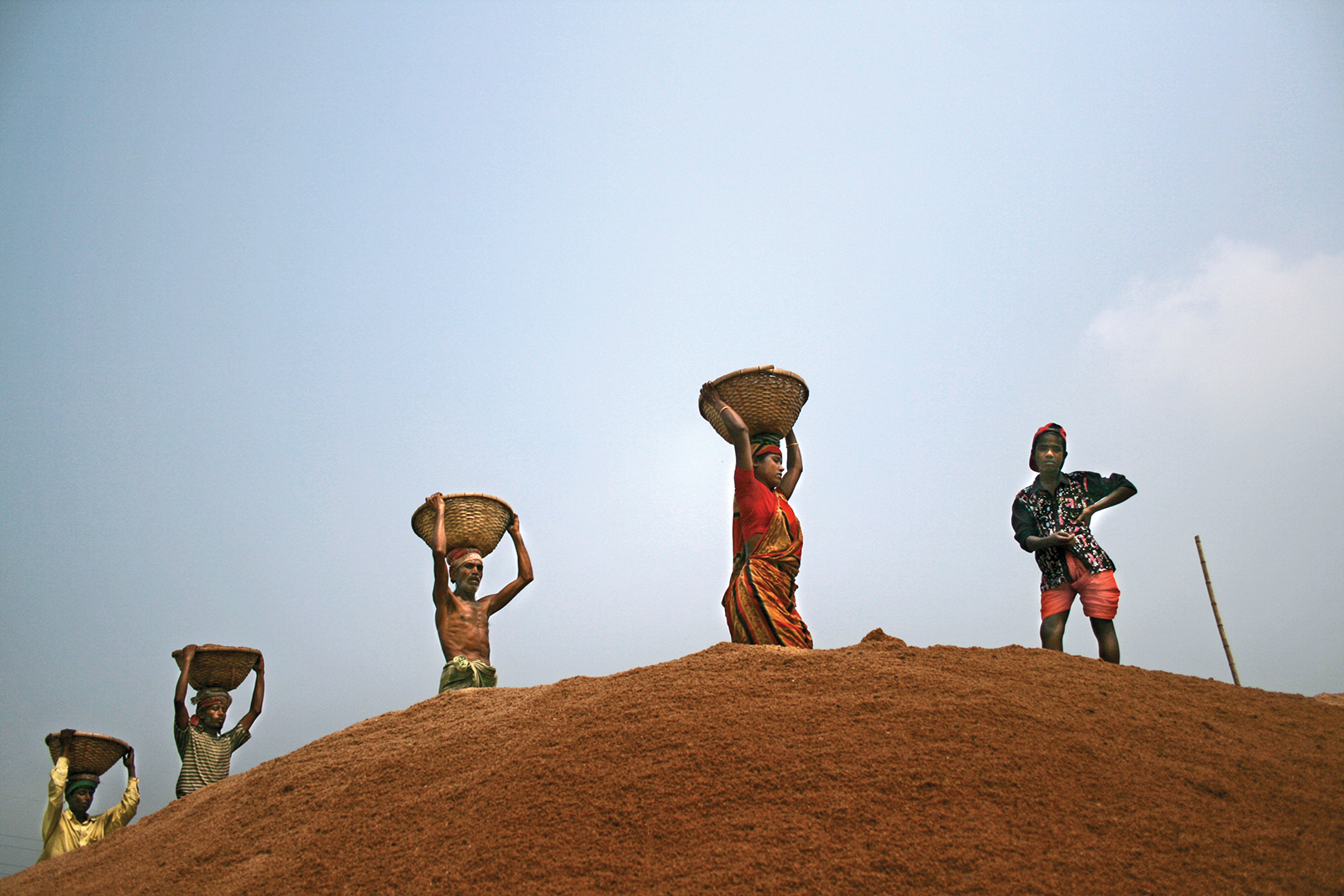Abu Taher Bappa
Published:2020-03-30 00:22:56 BdST
Govt should bring blue-collar workers under social safety-net
NEWS DESK
The government needs to expand the current social safety-net programme aiming to cover more lower-income people, already hit by Covid-19 pandemic, economists say.
They said since there was a possibility of more people falling back into poverty as a consequence of new coronavirus, the vulnerable groups should be brought under the social safety-net coverage over the next six months.
During fiscal year 2019-20, the government has slightly reduced the social-safety-net allocation from that of the last fiscal.
An estimated 35 million people, or 20.5 percent of the population, still live below the poverty line.
Economists and analysts have expressed the fear that many people could join the rank of poor in the aftermath of the virus, losing daily work.
They also worried about the economic slowdown.
The World Bank, in a recent report, has showed that more than half the country's population under the upper poverty line could slip into poverty owing to any possible shocks.
Economist Dr. Ahsan H Mansur said that the government should immediately widen its social protection coverage to weather the impact of the virus on the poor and low-income people.
"It should start the daily hot-meal programme for the poor people, who live in different pockets, including slums in Dhaka and other urban and rural areas of the country," he said.
Dr. Mansur, executive director of the Policy Research Institute of Bangladesh, or PRI, suggested the government extend the Food for Work, VGF, cash transfer and other social safety-net schemes incorporating the people, who are now jobless or have seen their income dwindle.
"Many people, who migrated to Dhaka and other big cities seeking work, have already gone back to their village homes after the virus outbreak. They were working as labourers, rickshaw pullers, for example.
These people, who have no work now and are staying at home, should be included immediately in the social protection schemes," he added.
The local government institutions including city councils, union and Upazila Parishad could be utilised for continuing such programmes, he argued.
The PRI executive director suggested low-salaried staffers such as cleaners, security guards, restaurant boys, salesmen in shopping malls, who have already lost their jobs or on leave without pay, should be brought under the cash support schemes.
Research director of the Centre for Policy Dialogue Dr. Khandakar G. Moazzem said the existing social protection funds of the budget would have to be ramped up for bringing the people, now rendered vulnerable.
Referring to the Bangladesh Bureau of Statistics data, Dr. Moazzenm, said nearly 87 percent of the country's population is involved in the informal sector.
The poorly-paid workers have been affected by the virus-induced crisis.
"Many of the low-paid and low-income groups have no jobs now. Moreover, they are not under any social safety-net programmes of the government," he said, warning that these people could slide back into poverty.
The government should identify those people with the help of local government agencies, NGOs or by their immediate past employers, and provide some cash or income support in the next six months or until the normalcy is restored, Dr. Moazzem said.
Meanwhile, some 11.4 million people are now under the social safety-net coverage of different public sector schemes.
Currently, the government is continuing some schemes like Old Age Allowance, Allowances for the Widow, Destitute & Deserted Women, Allowances for the Financially Insolvent Disabled, Employment Generation Programme for the Poorest, Food for Work/Work for Money and Test Relief, Vulnerable Group Feeding, and Towards a Child Benefit Scheme in the country.
Unauthorized use or reproduction of The Finance Today content for commercial purposes is strictly prohibited.


